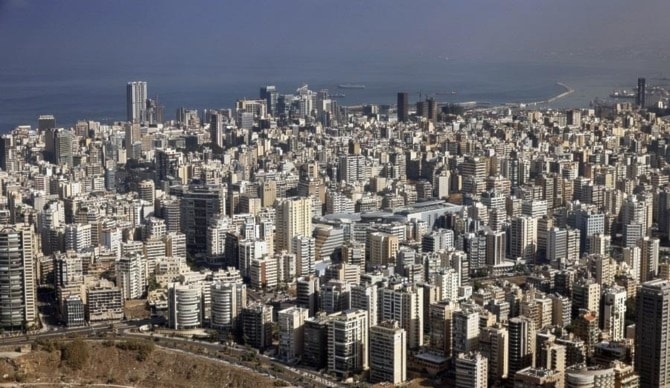Beirut's cancer cases surge 30% due to diesel generator pollution
Lebanon's economy and electricity infrastructures are severely damaged, leading to a reliance on local power generation, which has resulted in detrimental impacts on air quality and public health.
-

An aerial view of the Lebanese capital Beirut on October 27, 2020 (AFP)
Recent research conducted by scientists at the American University of Beirut (AUB) indicated that Beirut's heavy dependence on diesel generators over the past five years has directly resulted in a twofold increase in the risk of developing cancer. Oncologists report a significant rise in the rate of cancer diagnoses as a consequence.
In Makassed, a densely populated area of Beirut examined in the study, pollution levels from fine particulate matter measuring less than 2.5 micrometers in diameter (PM2.5) reached a peak of 60 micrograms per cubic meter. This exceeds the World Health Organization's recommended limit of 15 mcg/m³, which people should not be exposed to for more than 3-4 days per year, by fourfold.
Since 2017, when the American University of Beirut (AUB) last conducted these measurements, the emission of carcinogenic pollutants into the atmosphere has doubled in three areas of Beirut.
Informally, oncologists in Beirut estimated that overall cancer rates have been increasing by 30% each year since 2020. There is a widespread observation, though not yet supported by concrete data, that patients are becoming younger and tumors are becoming more aggressive.
In 2023, Human Rights Watch highlighted the impact of an unreliable power supply on people's access to electricity, criticizing the Lebanese government for persistently implementing policies that reinforced reliance on oil, despite global efforts to shift toward renewable energy sources.
In the same context, a 2020 Greenpeace study revealed that approximately 2,700 individuals in Lebanon died prematurely in 2018 due to air pollution, marking the highest per capita rate in the Middle East, tied with Egypt.
The report also revealed that air pollution incurred an economic cost of $1.4 billion in Lebanon, equivalent to 2% of its GDP. With the absence of comprehensive data, it is currently impossible to estimate the number of premature deaths caused by air pollution.
Read more: WHO research shows 90% of Middle East air pollution from fossil fuels

 2 Min Read
2 Min Read








